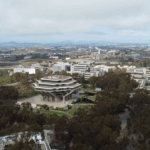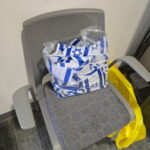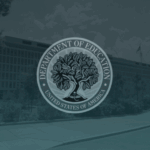Ivory Tower Occupation
There is an odd sort of ying-yang going on between the Occupy Wall Street protests and institutions of higher learning. “Academics have become frequent visitors to Zuccotti Park, the 33,000-square-foot pedestrian plaza in the heart of New York City’s financial district that is now the site of a nearly monthlong protest, Occupy Wall Street,” Dan Berrett wrote in The Chronicle of Higher Education on October 21, 2011. “Famous scholars like Cornel West, Slavoj Zizek, and Frances Fox Piven have spoken to the crowd, with their remarks dispersed, word-for-word, from one cluster of people to the next through a ‘human megaphone.’”
“Many others, such as Lawrence Lessig, have lent their support from farther away, as the demonstrations have spread to cities and college campuses nationwide.” The scholars who have showed up to bond with the protestors include not only West, Zizek and Piven but also Michael Hardt, of Duke , as well as Jeffrey D. Sachs and Joseph E. Stiglitz, of Columbia University.
“The movement has repeatedly been described as too diffuse and decentralized to accomplish real change, and some observers have seen the appearances by academic luminaries as an attempt to lend the protest intellectual heft and direction,” Berrett writes. “Certainly, its intellectual underpinnings and signature method of operating are easier to identify than its goals.”
“Economists whose recent works have decried income inequality have informed the movement’s critiques of capitalism.” They include Hardt, a professor of literature at Duke, and Antonio Negri, former professor of political science at the University of Padua. “They have anticipated some of the central issues raised by the protests,” Berrett notes. “Most recently, they linked the actions in New York and other American cities to previous demonstrations in Spain, Cairo’s Tahrir Square, and in Athens, among other places.”
By the way, Hardt’s positive ratings on Rate My Professors.com make for interesting reading:
- “Thinks he’s Engels. Knows Antonio Negri. Is really nice and lets you take your time with exams. Is really cute when he tries to be authoritarian.”
- “Hardt is the most interesting person here at duke. His ideas are original and thought-provoking, his down-to-earth socialist perspectives makes class a learning experience not a regime.”
- “The Marxism readings were dense-lecture was usually helpful in clarifying. he can ramble and not make sense but the review sessions and having open note tests made up for it.”
We have covered Stiglitz’s involvement as well as the clarion call to action delivered by the American Association of University Professors (AAUP).
Oddly, the denizens of both the street occupations and the institutions they object to sprang from roughly the same place. For example, our last two presidents, who arguably anted up the government-sponsored gambling that led to the current crisis, went through Harvard.
Malcolm A. Kline is the Executive Director of Accuracy in Academia.
If you would like to comment on this article, e-mail contact@academia.org




